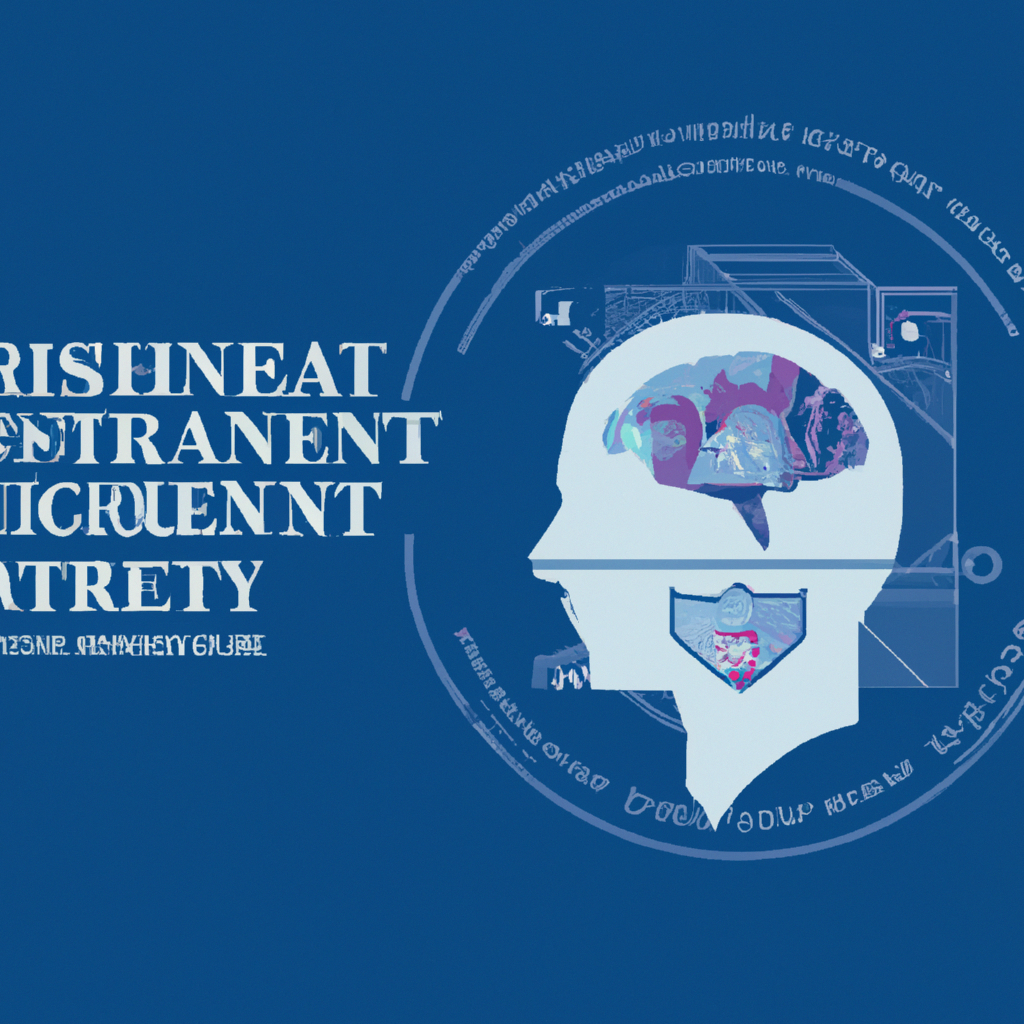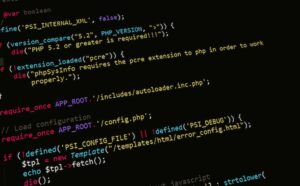-
Table of Contents
- Introduction
- Exploring the Potential of AI-Powered Autonomous Weapons Systems
- The Impact of AI on Cybersecurity and Cyber Warfare
- The Role of AI in Enhancing Intelligence Gathering and Analysis
- The Use of AI in Military Logistics and Supply Chain Management
- The Benefits and Challenges of AI-Powered Autonomous Vehicles in Defense Applications
- Conclusion
with AI.
Introduction
Artificial Intelligence (AI) is rapidly transforming the way nations protect their citizens and defend their interests. AI is being used to enhance national security and military strategy by providing new capabilities to detect, identify, and respond to threats. AI can be used to automate and streamline processes, improve decision-making, and provide insights into complex situations. AI can also be used to develop new weapons and tactics, as well as to improve existing ones. AI is also being used to improve the efficiency of military operations, from logistics to intelligence gathering. AI is revolutionizing the way nations defend themselves, and its potential to improve national security and military strategy is immense.
Exploring the Potential of AI-Powered Autonomous Weapons Systems
As the world continues to move forward in the realm of artificial intelligence (AI), the potential of AI-powered autonomous weapons systems is becoming increasingly apparent. Autonomous weapons systems are weapons that can operate without direct human control, relying instead on AI algorithms to make decisions about when and how to use force.
The potential of autonomous weapons systems is vast. They could be used to protect military personnel from harm, as well as to reduce the risk of civilian casualties in conflict zones. Autonomous weapons systems could also be used to respond quickly to threats, allowing for a more efficient use of resources.
At the same time, there are a number of ethical and legal issues that must be considered when discussing the potential of autonomous weapons systems. For example, who is responsible for the decisions made by an autonomous weapons system? How can we ensure that these systems are used responsibly and in accordance with international law?
These are important questions that must be addressed before autonomous weapons systems can be deployed. Fortunately, there are a number of organizations and initiatives that are working to ensure that autonomous weapons systems are used responsibly and ethically.
For example, the Campaign to Stop Killer Robots is a global coalition of non-governmental organizations that is working to ensure that autonomous weapons systems are not used in a way that violates international law or human rights. The International Committee of the Red Cross is also working to ensure that autonomous weapons systems are used in a way that is consistent with international humanitarian law.
Ultimately, the potential of AI-powered autonomous weapons systems is immense. As we continue to explore the possibilities of AI, it is important to ensure that these systems are used responsibly and ethically. With the right safeguards in place, autonomous weapons systems could be a powerful tool for protecting military personnel and civilians alike.
The Impact of AI on Cybersecurity and Cyber Warfare
The impact of artificial intelligence (AI) on cybersecurity and cyber warfare is undeniable. AI has the potential to revolutionize the way we protect our digital assets and defend against cyber threats.
AI can be used to detect and respond to cyber threats more quickly and accurately than ever before. AI-powered systems can analyze vast amounts of data to identify patterns and anomalies that may indicate a cyber attack. This allows organizations to detect and respond to threats before they can cause significant damage. AI can also be used to automate the process of patching and updating software, which can help reduce the risk of cyber attacks.
AI can also be used to improve the effectiveness of cyber defense systems. AI-powered systems can be used to detect and respond to malicious activity in real-time, allowing organizations to respond quickly and effectively to cyber threats. AI can also be used to automate the process of identifying and blocking malicious traffic, which can help reduce the risk of a successful attack.
Finally, AI can be used to improve the effectiveness of cyber warfare. AI-powered systems can be used to analyze vast amounts of data to identify patterns and anomalies that may indicate a cyber attack. This allows organizations to detect and respond to threats before they can cause significant damage. AI can also be used to automate the process of identifying and blocking malicious traffic, which can help reduce the risk of a successful attack.
In conclusion, the impact of AI on cybersecurity and cyber warfare is undeniable. AI has the potential to revolutionize the way we protect our digital assets and defend against cyber threats. AI-powered systems can analyze vast amounts of data to identify patterns and anomalies that may indicate a cyber attack, allowing organizations to detect and respond to threats before they can cause significant damage. AI can also be used to automate the process of patching and updating software, as well as identifying and blocking malicious traffic, which can help reduce the risk of a successful attack.
The Role of AI in Enhancing Intelligence Gathering and Analysis
Artificial intelligence (AI) is revolutionizing the way intelligence gathering and analysis is conducted. AI is a powerful tool that can be used to automate mundane tasks, identify patterns, and uncover insights that would otherwise be difficult to detect. By leveraging AI, intelligence agencies can quickly and accurately process large amounts of data, allowing them to make more informed decisions and better anticipate potential threats.
AI can be used to automate the process of gathering intelligence. AI-powered algorithms can be used to quickly scan through large amounts of data, such as social media posts, emails, and other online sources, to identify potential threats. This can help intelligence agencies stay ahead of potential threats and respond quickly to any emerging threats.
AI can also be used to analyze large amounts of data to uncover patterns and insights that would otherwise be difficult to detect. AI-powered algorithms can be used to identify trends and correlations in data that can help intelligence agencies better anticipate potential threats. For example, AI can be used to analyze social media posts to identify potential terrorist activity or to identify patterns in financial transactions that could indicate money laundering.
AI can also be used to automate the process of analyzing intelligence. AI-powered algorithms can be used to quickly process large amounts of data and identify patterns and insights that would otherwise be difficult to detect. This can help intelligence agencies make more informed decisions and better anticipate potential threats.
In conclusion, AI is a powerful tool that can be used to enhance intelligence gathering and analysis. AI can be used to automate mundane tasks, identify patterns, and uncover insights that would otherwise be difficult to detect. By leveraging AI, intelligence agencies can quickly and accurately process large amounts of data, allowing them to make more informed decisions and better anticipate potential threats.
The Use of AI in Military Logistics and Supply Chain Management
The use of artificial intelligence (AI) in military logistics and supply chain management is becoming increasingly important as the world’s militaries strive to become more efficient and effective. AI can help militaries to better manage their supply chains, reduce costs, and improve operational readiness.
AI can be used to automate many of the processes involved in military logistics and supply chain management. For example, AI can be used to analyze data from various sources, such as inventory levels, customer orders, and supplier information, to identify trends and patterns. This can help to identify potential problems before they become major issues, allowing for proactive solutions. AI can also be used to automate the ordering and tracking of supplies, reducing the need for manual intervention.
AI can also be used to optimize the routing of supplies and personnel. By analyzing data from various sources, AI can identify the most efficient routes for delivering supplies and personnel to their destinations. This can help to reduce costs and improve operational readiness.
AI can also be used to improve the accuracy of forecasting. By analyzing data from various sources, AI can identify patterns and trends that can be used to predict future demand for supplies and personnel. This can help to ensure that the right resources are available when and where they are needed.
Finally, AI can be used to improve the security of military supply chains. By analyzing data from various sources, AI can identify potential security threats and take steps to mitigate them. This can help to ensure that supplies and personnel are safe and secure.
The use of AI in military logistics and supply chain management is becoming increasingly important as militaries strive to become more efficient and effective. AI can help to automate processes, optimize routing, improve forecasting, and improve security, all of which can help to reduce costs and improve operational readiness.
The Benefits and Challenges of AI-Powered Autonomous Vehicles in Defense Applications
Autonomous vehicles (AVs) powered by artificial intelligence (AI) are revolutionizing the defense industry. AVs are capable of performing complex tasks with minimal human intervention, making them ideal for a variety of defense applications. From reconnaissance missions to search and rescue operations, AVs can be used to increase efficiency and reduce the risk of human casualties. However, there are both benefits and challenges associated with the use of AI-powered AVs in defense applications.
The primary benefit of using AI-powered AVs in defense applications is increased efficiency. AVs can be programmed to complete tasks quickly and accurately, reducing the need for human intervention. This can save time and money, as well as reduce the risk of human error. Additionally, AVs can be used in dangerous or hazardous environments, such as in reconnaissance missions or search and rescue operations, where human presence would be too risky.
Another benefit of using AI-powered AVs in defense applications is improved safety. AVs can be programmed to follow safety protocols and avoid dangerous situations, reducing the risk of human casualties. Additionally, AVs can be used to monitor and detect potential threats, allowing for a quicker response time.
Despite the many benefits of using AI-powered AVs in defense applications, there are also some challenges. One of the biggest challenges is the cost of developing and deploying AVs. AI-powered AVs require sophisticated hardware and software, which can be expensive to develop and maintain. Additionally, AI-powered AVs require a significant amount of data to operate effectively, which can be difficult to obtain in certain environments.
Finally, there are ethical considerations associated with the use of AI-powered AVs in defense applications. AI-powered AVs are capable of making decisions without human intervention, which raises questions about accountability and responsibility. Additionally, AI-powered AVs can be used to target and eliminate potential threats, which raises ethical questions about the use of lethal force.
In conclusion, AI-powered AVs offer many benefits for defense applications, including increased efficiency, improved safety, and reduced risk of human casualties. However, there are also some challenges associated with the use of AI-powered AVs, including cost, data availability, and ethical considerations. Ultimately, the decision to use AI-powered AVs in defense applications should be made carefully, taking into account all of the potential benefits and challenges.
Conclusion
AI has the potential to revolutionize defense and national security by providing new capabilities and insights to military strategy. AI can help to identify and respond to threats faster, improve decision-making, and reduce the risk of human error. AI can also be used to automate mundane tasks, freeing up personnel to focus on more important tasks. AI can also be used to improve the accuracy of weapons systems and increase the effectiveness of surveillance and reconnaissance. AI can also be used to improve the efficiency of logistics and supply chain management. Ultimately, AI can be used to enhance national security and military strategy, making it an invaluable tool for defense.




